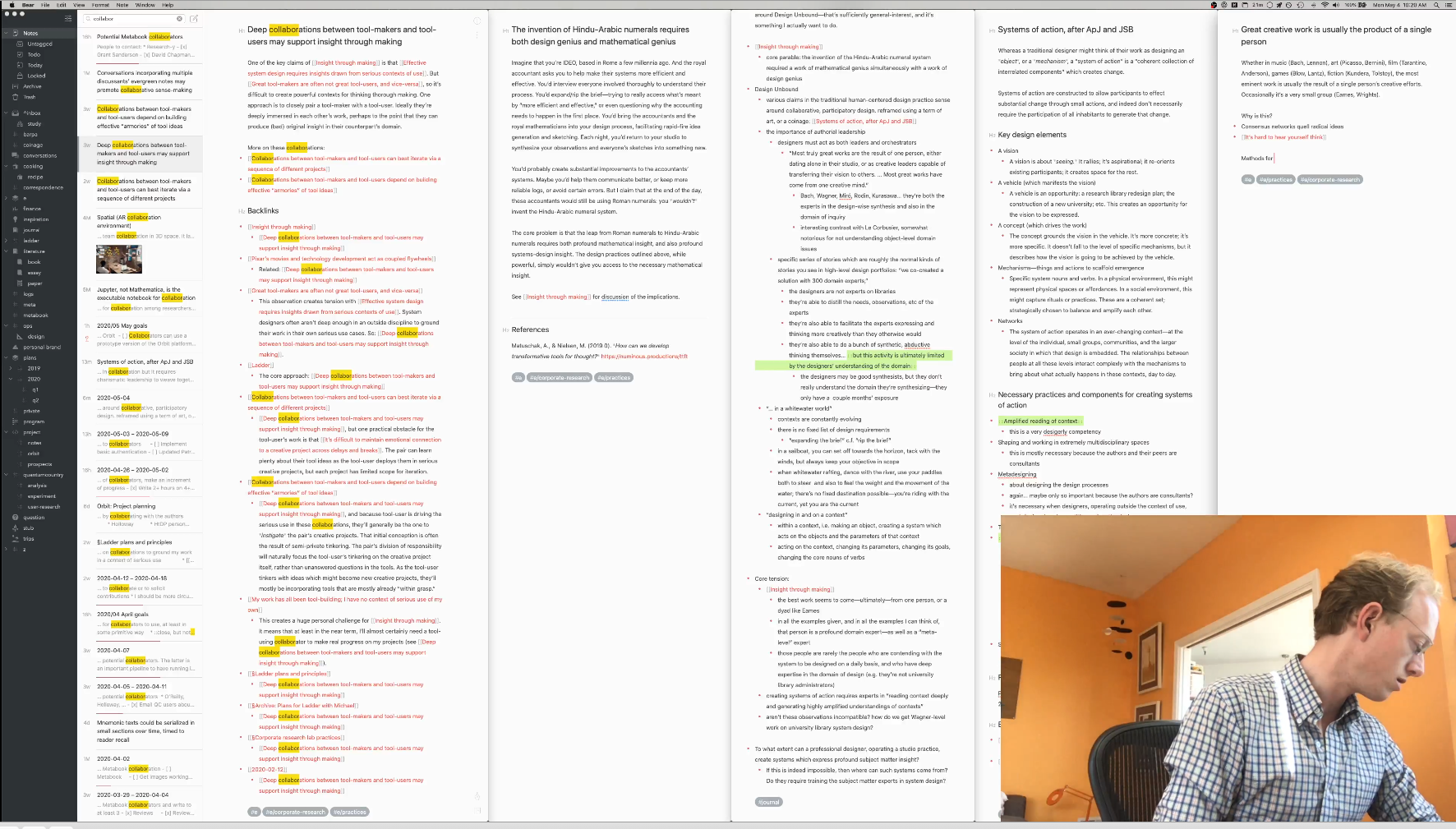📕 Node [[andy matuschak knowledge work showcase video]]
📄 Andy-Matuschak-Knowledge-work-showcase-video.md by @houshuang
- https://www.twitch.tv/videos/611050187]
- about John Seely Brown, Design Unbound and Insight through making about design
- starts a daily note, hierarchical bullets but also normal text. Making new pages and clicking on them. Bear
- taking notes from the book - not clear if he has already taken notes while reading the book, or if he is just talking from memory and flipping through the book while taking notes
- Initially adding a bunch of concepts, and then indenting under, saying "I will separate these out into different notes later"
-
[[types of reasoning]] / thinking
-
synthetic
- syntopic
-
abductive
- Abductive reasoning (also called abduction, abductive inference, or retroduction) is a form of logical inference that starts with an observation or set of observations and then seeks to find the simplest and most likely conclusion from the observations. #**Occam’s razor**? designerly thinking?
-
Despite many possible explanations for any physical process that we observe, we tend to abduce a single explanation (or a few explanations) for this process in the expectation that we can better orient ourselves in our surroundings and disregard some possibilities. Properly used, abductive reasoning can be a useful source of Bayesian priors
- This process, unlike deductive reasoning, yields a plausible conclusion but does not positively verify it - inference to the best explanation
- inductive
-
Deductive
- a valid deduction guarantees the truth of the conclusion
-
synthetic
- curious about how Andy thinks about mapping, would any of this thinking have been better done visually?
-
creates a note for the book, literature note
-
not evergreen, jumping off point, gets bibliography metadata from Zotero (manually)
- wonder if he automatically pulls in these for citations
- named autors comma title
- writes short summary - not copying from his daily note. Grounds his thinking, provides feedback about how well he understands the bookj.
-
not evergreen, jumping off point, gets bibliography metadata from Zotero (manually)
-
coinage-oriented note, named after the authors - doesn’t like this, means he hasn’t properly digested it yet. Not sure if this concept has transcended the book yet (in wider usage)
- trying to put it in his own words, instead of copying
-
Example of using search, and working across a large number of notes

Rendering context...
